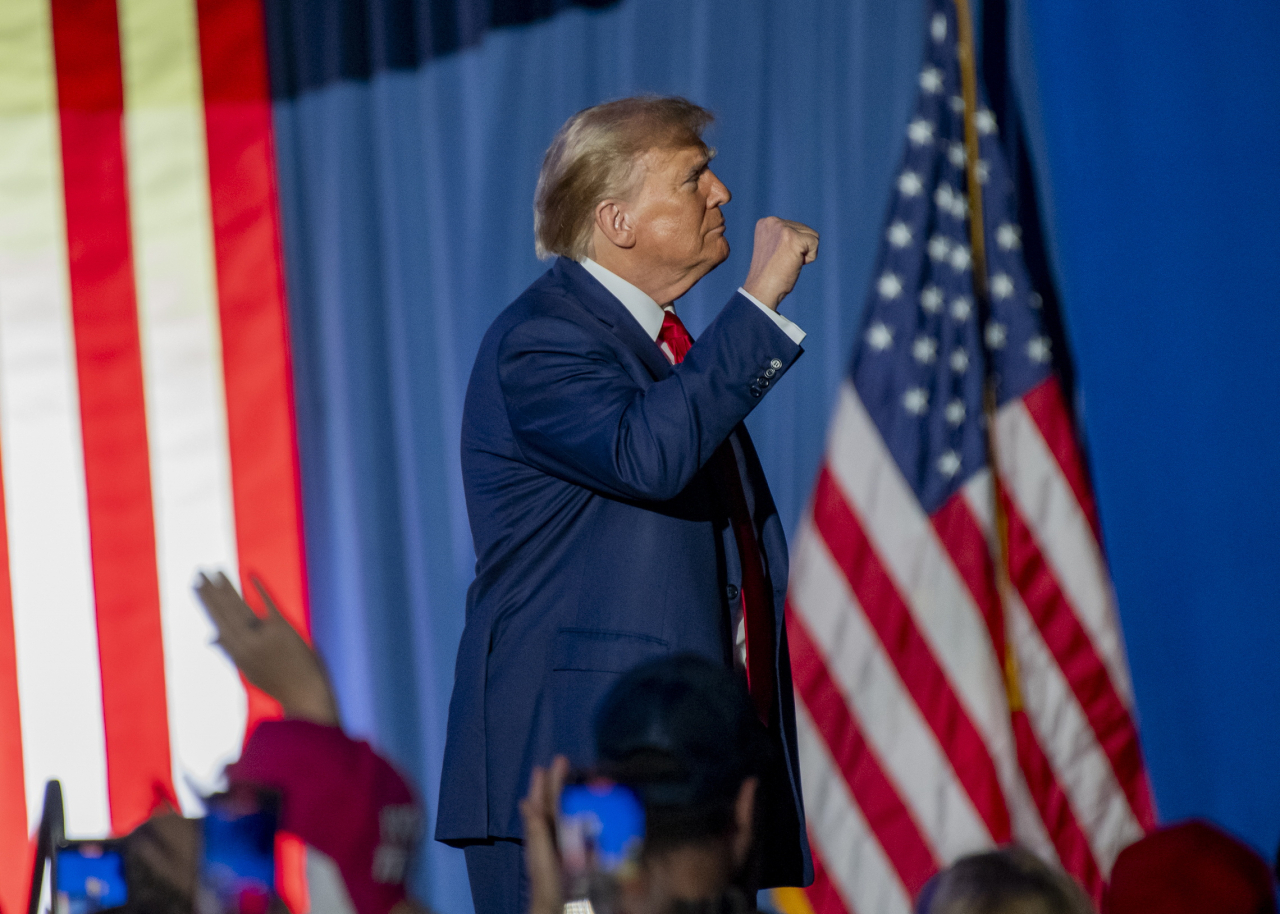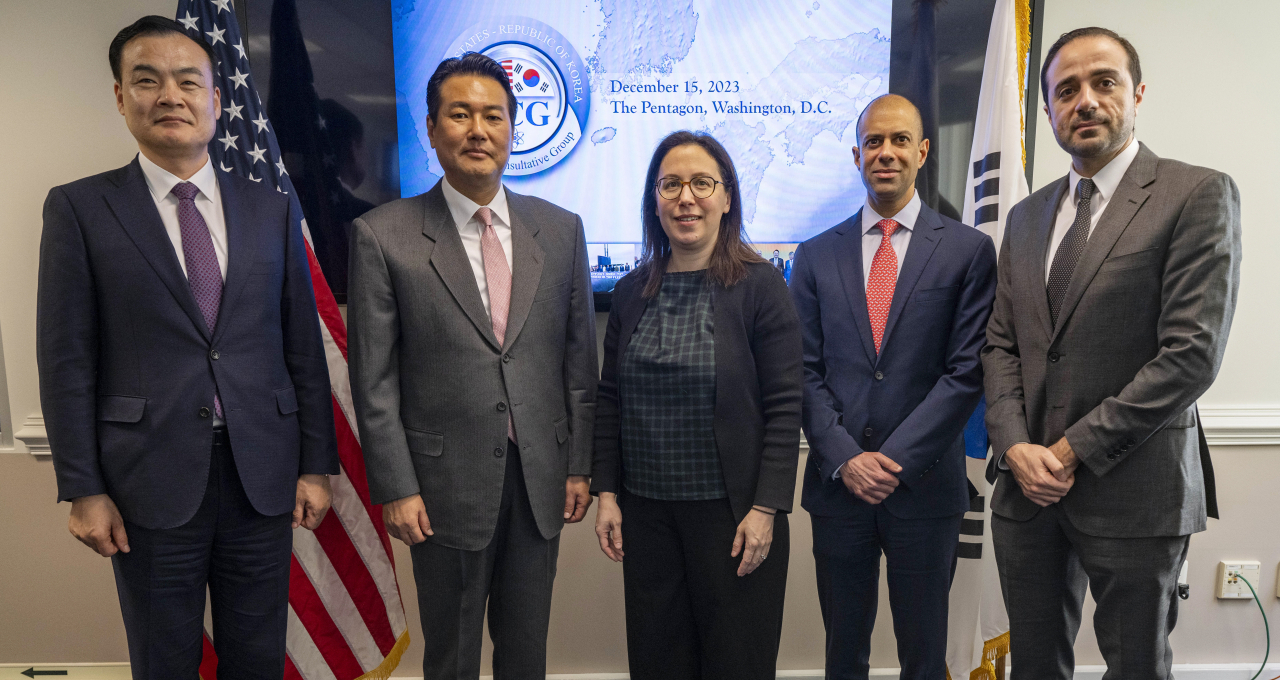Trump factor clouds Biden pledge to bolster South Korean nuclear defense
By Kim ArinPublished : Dec. 17, 2023 - 15:27

South Korea and the US held another round of talks on nuclear deterrence in Washington DC on Friday, as part of US President Joe Biden’s commitment to step up protection from North Korea. According to a Seoul official, both sides agreed to complete guidelines on joint nuclear defense strategy by mid-2024 -- a timeline that falls before the US presidential election.
South Korea’s principal deputy national security adviser, Kim Tae-hyo, told reporters that Seoul and Washington have decided to draw up comprehensive guidelines for responding to a conflict with Pyongyang and deterring its nuclear weapons.
The guidelines would include sharing sensitive information concerning North Korea’s nuclear threats, establishing a consultation process in the event of a nuclear crisis and setting up a secure hotline for real-time communication between the leaders of the two countries, according to the Seoul official.
He called the progress made from the latest meeting of the Nuclear Consultative Group, the bilateral body for implementing South Korean President Yoon Suk Yeol and Biden’s Washington Declaration, “a significant step forward in extended deterrence.”
“This meeting builds on the US nuclear umbrella that was already in place by involving South Korea in the design, preparation and execution of a response against a North Korean nuclear attack,” he said, speaking about the first NCG meeting hosted in the US, held five months after the inaugural meeting in Seoul.
He added that Seoul officials involved in the working-level meetings were getting the knowledge and training that would collectively “boost South Korea’s nuclear intelligence.”
The progress that Yoon and Biden have achieved in nuclear deterrence cooperation may be at risk of being overturned should another Donald Trump administration take office, however, experts in Seoul worry.
Yang Uk, a defense researcher at the Asan Institute of Policy Studies, told The Korea Herald that the plan outlined for expediting progress by the first half of next year may have considered that Trump’s possible White House return could invalidate the bilateral efforts.
“To contain the Trump risk, the South Korean government should aim to make a meaningful development before the 2024 presidential election so that it might prevent the next US administration from doing away with something that has already led to tangible progress,” he said.
Yang said that Trump, who, when in power, called for US allies to bear more of the defense costs, may surprise South Korea with unexpected moves.
A Dec. 13 Politico report said Donald Trump may be planning to let North Korea keep its nuclear weapons, diverging from the policy of US presidents of both parties for denuclearizing the isolated country.
Rep. Han Ki-ho, the chair of the National Assembly’s national defense committee, told The Korea Herald if Trump gets elected a second time, the former US President will be forced to realize South Korea and the US are now dealing with a North Korea that has allowed itself by law preemptive nuclear strikes.
“This is a different North Korea than when (Trump) was in office,” the army commander-turned-lawmaker said. “The direction that Yoon and Biden administrations is headed is one that reflects the renewed North Korea threats, and one that the two countries ought to continue to pursue.”
Amid warnings of a possible intercontinental ballistic missile launch by North Korea this month, a US nuclear-powered submarine arrived at the South Korean port city of Busan, according to Seoul’s Defense Ministry. The arrival of the USS Missouri was anticipated to boost South Korea and the US’ combined defense posture, the Defense Ministry said.
The Virginia-class submarine is the latest US attack submarine to dock at a South Korean naval base after the USS Santa Fe, a Los Angeles class, three weeks ago. The Virginia-class is a later generation attack submarines that are scheduled to replace older Los Angeles-class ones.
In July, the USS Kentucky pulled into Busan, marking a first visit of a US nuclear ballistic missile submarine to a South Korean port in four decades. The port call by the nuclear-capable submarine came as a part of the US commitment under the Washington Declaration to enhance deployments of strategic assets here.




















